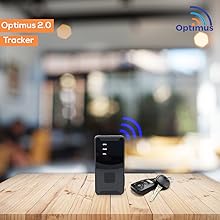So, you’ve got a shiny new GPS tracker – fantastic! Now comes the crucial decision: DIY installation or professional help? This isn’t just about sticking a device to your dashboard; it’s about ensuring reliable tracking, a long lifespan for your device, and – critically – your safety and the safety of your vehicle.
DIY GPS Tracker Installation: The DIYer’s Dilemma
The allure of DIY is undeniable. It saves money, offers a sense of accomplishment, and lets you tackle the job at your own pace. Many GPS trackers come with straightforward instructions, making the process seem simple enough. You might even find countless YouTube tutorials promising a painless installation in under ten minutes. But before you grab your screwdriver, let’s consider the potential downsides.
Hidden Wiring and Potential Damage: Professional installers are trained to identify the best location for the tracker’s wiring, minimizing the risk of accidental damage to your vehicle’s electrical system. DIYers, lacking this expertise, might inadvertently cut a crucial wire, triggering a short circuit or even a fire. Properly routing and securing the wiring is more challenging than it looks.
Warranty Considerations: Many GPS tracker manufacturers offer warranties, but these are often voided if the device isn’t installed professionally. This is because improper installation can lead to malfunctions and premature failure, which the manufacturer isn’t responsible for covering. Read the fine print – it might cost you more in the long run to save on installation.
Hard-to-Reach Areas and Specialized Tools: Some GPS trackers require installation in less-accessible areas, potentially necessitating specialized tools and a good deal of patience. For example, securing the tracker under the dashboard or in the engine bay might be tricky without the right tools or experience. This isn’t just about convenience; incorrect installation in these areas could compromise the functionality of the tracker or damage your vehicle.
Inconsistent Tracking Accuracy: The placement of the GPS tracker significantly impacts its accuracy. A DIY installation might inadvertently place the tracker in an area with poor signal reception, leading to inconsistent or inaccurate tracking data. Professionals know how to optimize signal strength by strategic placement.
Professional GPS Tracker Installation: The Pro’s Perspective

Opting for professional installation might seem like an unnecessary expense, but it offers several significant advantages:
Expertise and Experience: Professional installers possess the knowledge and experience to handle diverse vehicle types and GPS tracker models. They understand the vehicle’s electrical system and can identify the optimal installation location for optimal signal reception and longevity.
Warranty Protection: Many professional installers offer warranties on their work, giving you peace of mind knowing that the installation is reliable and protected. This also often preserves the manufacturer’s warranty on the GPS tracker itself.
Safety and Security: Professionals prioritize safety, ensuring the installation doesn’t compromise your vehicle’s electrical system or create any fire hazards. Their adherence to safety protocols reduces the risk of damage.
Time Efficiency: A professional can typically install a GPS tracker much faster than a DIYer, saving you valuable time and effort. This is especially important if you need the tracker operational immediately.
Torque: The Unsung Hero of GPS Tracker Installation

While not directly related to DIY versus professional installation, torque plays a vital role in ensuring a secure and long-lasting GPS tracker installation. Torque refers to the rotational force applied to tighten bolts and screws. Using the correct torque prevents over-tightening, which can strip threads or damage the device or vehicle components. Under-tightening, on the other hand, results in a loose installation that could become detached. Professional installers use calibrated torque wrenches to ensure the correct torque is applied, guaranteeing a secure installation.
Engine Options and Torque Specifications
The specific torque requirements vary greatly depending on the type of GPS tracker and the vehicle. Consult your tracker’s installation manual and your vehicle’s service manual for the recommended torque specifications. These manuals will provide detailed instructions and necessary torque values for the specific fasteners used during the installation process. For example, the torque for mounting brackets might differ significantly from the torque for securing the wiring harness. Failure to adhere to manufacturer’s recommendations could lead to damage and void warranties.
Towing Capacity and its Relevance

While not directly related to GPS tracker installation, it’s worth noting that heavier trackers might require consideration of the vehicle’s towing capacity, especially if the tracker is mounted in a high-stress area. This is less of a concern for smaller, lighter GPS trackers, but for larger units, excessive weight or vibrations could lead to problems.
Competitor Comparison: Professional Installation Services
Many companies specialize in professional GPS tracker installations. It’s recommended to research several providers, comparing their pricing, experience, warranties, and customer reviews. Look for companies with established reputations and positive feedback. Consider factors like mobile installation services (convenience) versus shop-based installations (potentially lower cost).
Practical Advice: Making the Right Choice

Ultimately, the best option—DIY or professional—depends on your technical skills, comfort level, and time constraints. If you lack confidence in working with car electronics or are uncomfortable with potentially damaging your vehicle, professional installation is the safer and often smarter choice. If you’re mechanically inclined and comfortable working with your vehicle’s electrical system, a DIY approach might be feasible, provided you meticulously follow the manufacturer’s instructions and prioritize safety.
Remember to always consult your GPS tracker’s instruction manual and, if you choose DIY, consider watching multiple instructional videos before beginning the process. The small investment in professional installation could save you significant time, money, and stress in the long run.


